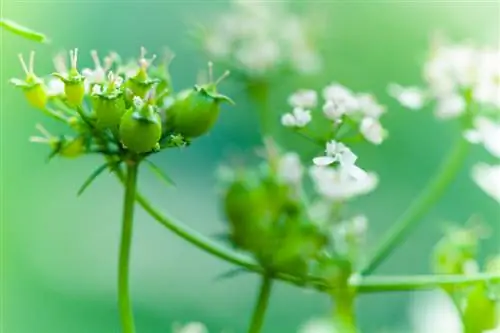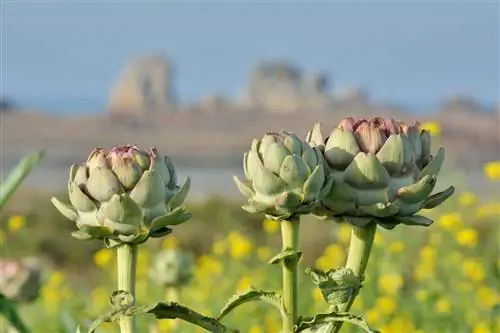- Author admin [email protected].
- Public 2023-12-16 16:46.
- Last modified 2025-01-23 11:20.
Rosemary is a very popular spice that not only adds an aromatic note to Mediterranean dishes. On the contrary, rosemary is very versatile and flavors meat, fish and vegetables as well as sweet dishes and desserts - try plum jam with rosemary or rosemary honey, delicious!

Where does rosemary originally come from?
Rosemary originally comes from the dry maquis of southern Europe and grows wild on the Iberian Peninsula as well as in Greece, Italy and Croatia. The versatile spice plant prefers sunny and warm locations and is usually cultivated as a pot or garden plant in Germany.
Mediterranean Rosemary
Rosemary, also known as “incense herb” in German parlance due to its intense scent, originally comes from the dry maquis of southern Europe. The shrub, which is up to two meters high, grows primarily on the Iberian Peninsula, but is also found growing wild in Greece, Italy and Croatia. In Germany, the plant does not generally grow as lushly as in its countries of origin - where it is also used to plant hedges - but only grows between 80 and 100 centimeters high. Just like in its Mediterranean countries of origin, rosemary needs a sunny and warm location here, although it is only very hardy in winter. Therefore, cultivation in pots is recommended, especially in the cooler regions of Germany.
Rosemary was already known in ancient times
It is not clear where the name “rosemary” comes from. Some experts assume that the name is derived from the Latin words “ros” for “dew” and “marinus” (for: “belonging to the sea”); Rosemary means something like “dew of the sea” in German. Other linguists, in turn, trace the plant name back to the Greek “rhops myrinos,” which in turn means “fragrant shrub.” What is certain, however, is that the herb has been used in cooking and as a medicinal herb for thousands of years. The German name “Brautkraut” is a remnant from ancient Greece, when rosemary was still consecrated to the goddess of love Aphrodite. In Germany, the plant finally found its way into monastery gardens in the late Middle Ages after it was brought over the Alps from Italy by wandering Benedictine monks. Paracelsus, a well-known doctor of the early modern period, recommended the medicinal use of rosemary, especially for gout and rheumatism.
Tips & Tricks
A recipe for a particularly delicious spread: Jam made from plums, mirabelle plums or white grapes, seasoned with a little (!) ground rosemary, tastes very intense. This mixture tastes great not only on bread, but also with game meat.






